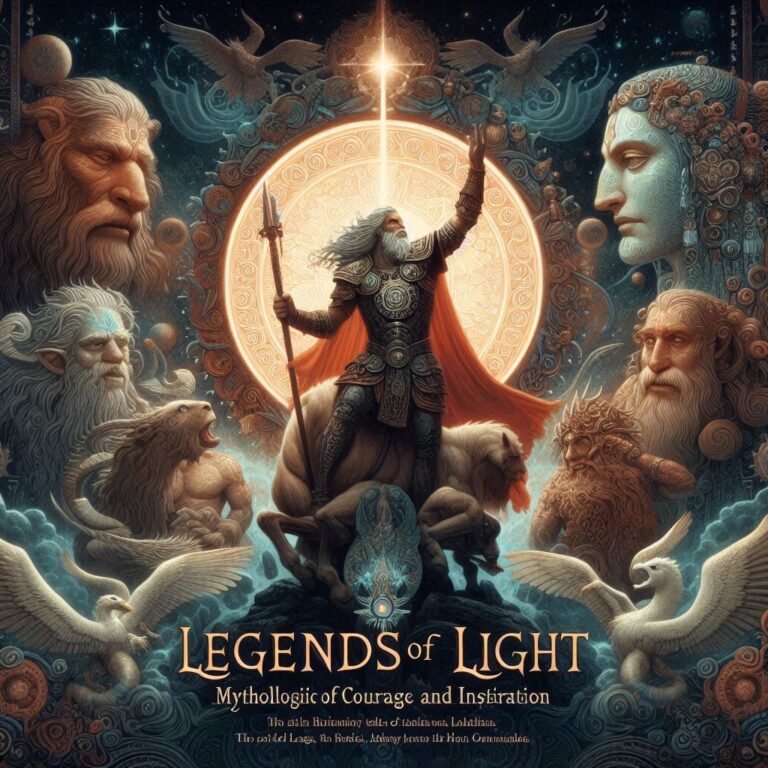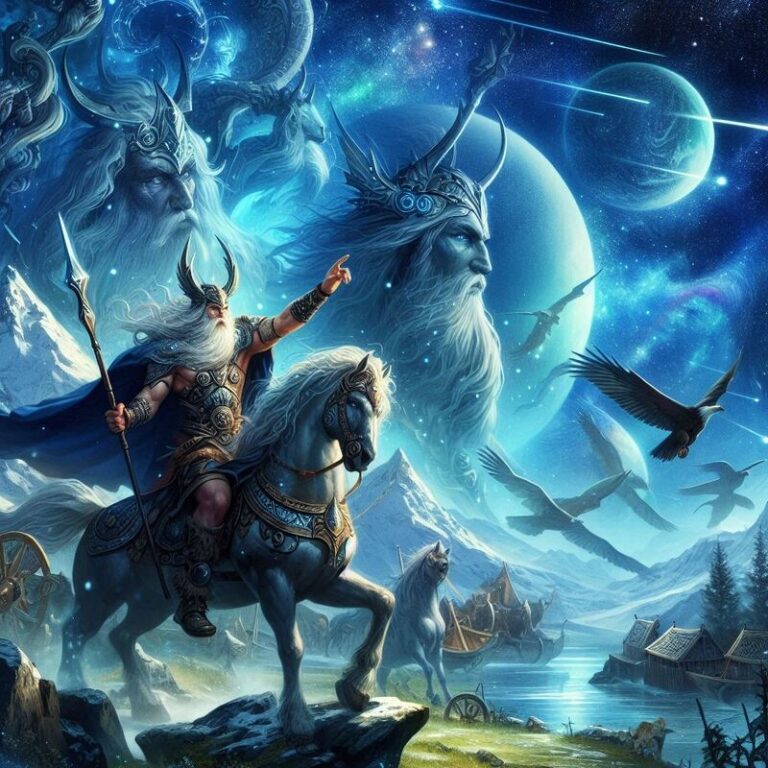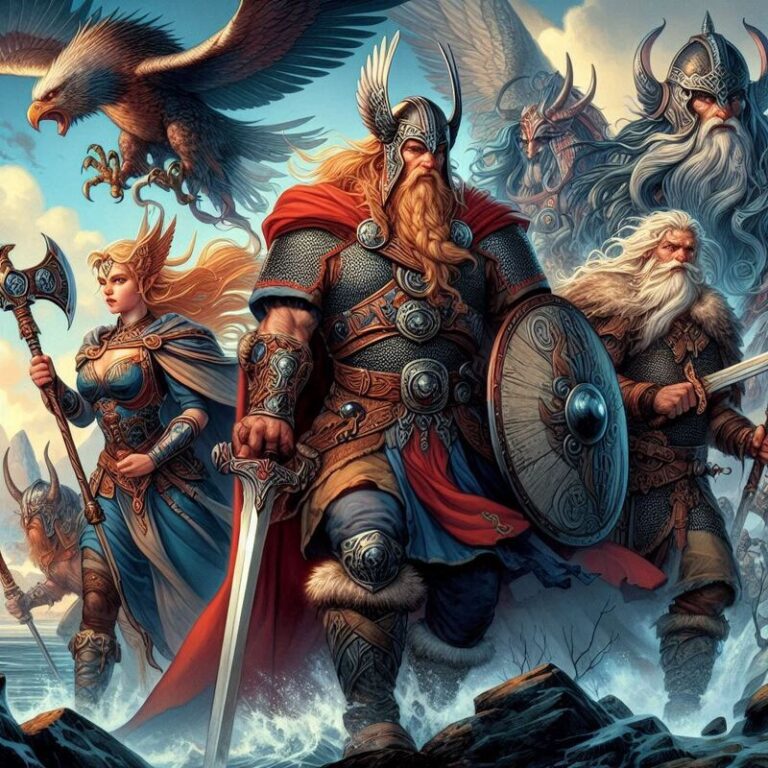Inspiring Myths of Creation Love and Heroism
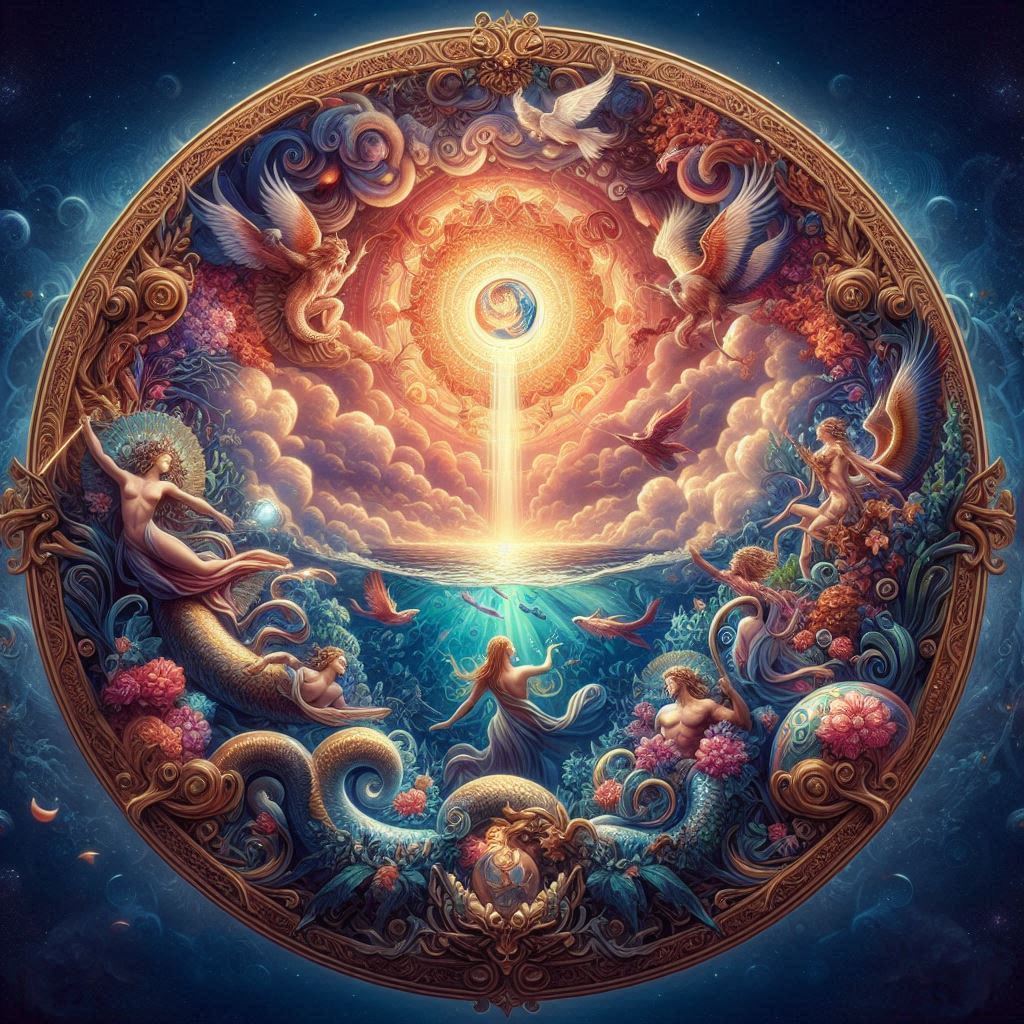
Inspiring Myths of Creation Love and Heroism
Divine Tales: Inspiring Myths of Creation, Love, and Heroism
Mythology, with its vast array of tales and legends, offers a tapestry of narratives that delve into the deepest aspects of human existence. Among these, stories of creation, love, and heroism stand out as timeless reflections of humanity’s quest for meaning, connection, and moral guidance. “Divine Tales” encapsulates the essence of these myths, weaving together stories from different cultures that inspire awe, compassion, and the pursuit of noble virtues. This article explores the enduring significance of divine myths, their cultural and moral implications, and their timeless relevance in contemporary society. Inspiring Myths of Creation Love and Heroism
The Mythic Landscape of Creation
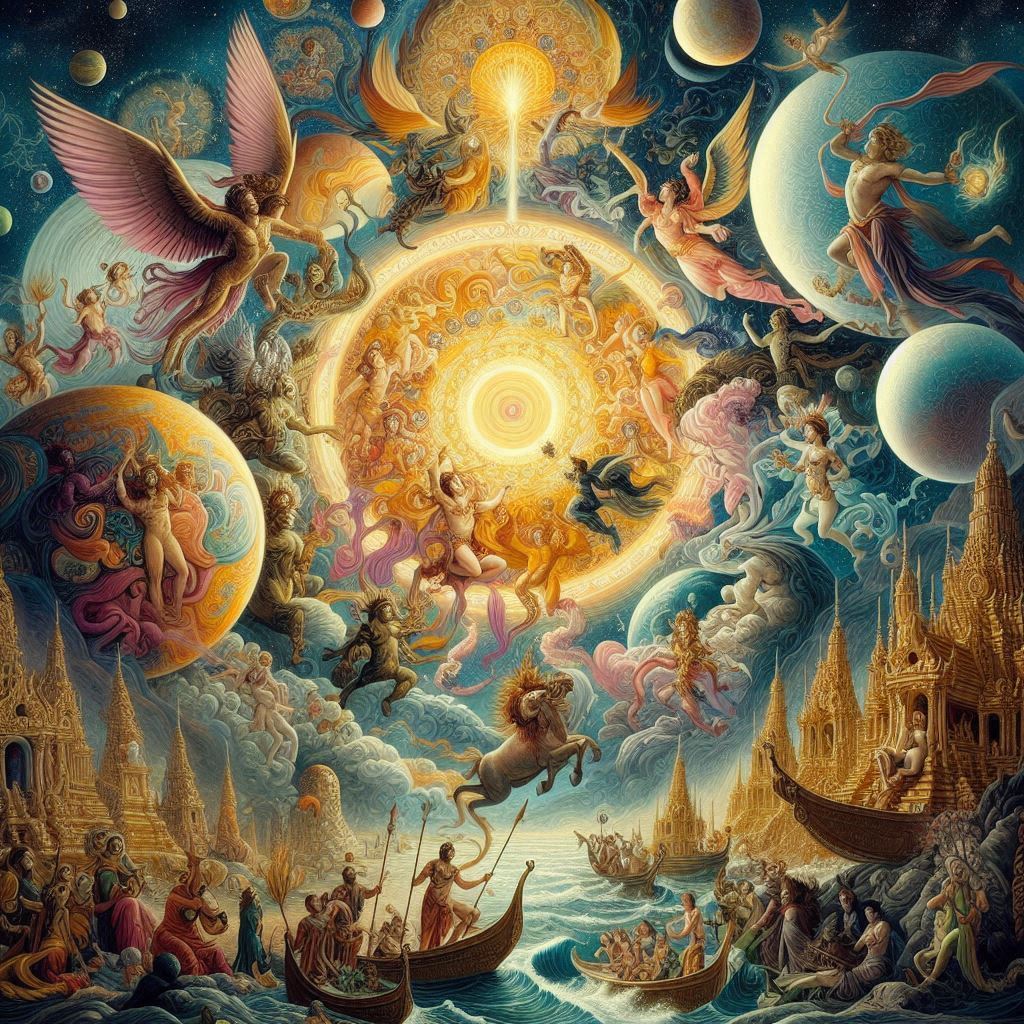
Across cultures, myths of creation serve as foundational narratives that explain the origins of the cosmos, humanity, and the natural world. These tales often feature divine beings or cosmic forces whose actions shape existence itself, imparting a sense of wonder and reverence for the mysteries of life.
1. Creation Myths:
In Greek mythology, the poet Hesiod recounts the emergence of the universe from Chaos, the primordial void, and the subsequent rise of the Titans and Olympian gods. The story of Prometheus, who molds humanity from clay and steals fire from the gods to empower them, underscores the themes of creation, innovation, and the consequences of defying divine authority.
2. Egyptian Mythology:
The Egyptian creation myth centers on Atum, the sun god, who emerges from the waters of chaos and creates the world through his creative power and divine will. The concept of Ma’at, representing cosmic order and harmony, guides the actions of gods and humans alike, emphasizing the importance of balance and justice in the universe. Inspiring Myths of Creation Love and Heroism
3. Hindu Cosmology:
In Hindu mythology, the Rigveda describes the cosmic sacrifice of Purusha, the primordial being whose dismemberment gives rise to the various elements of the universe. The epic tale of Vishnu’s avatars, including the creation and preservation of the world through divine intervention, illustrates the cyclical nature of existence and the interconnectedness of all life. Inspiring Myths of Creation Love and Heroism
Love and Devotion in Mythological Tales
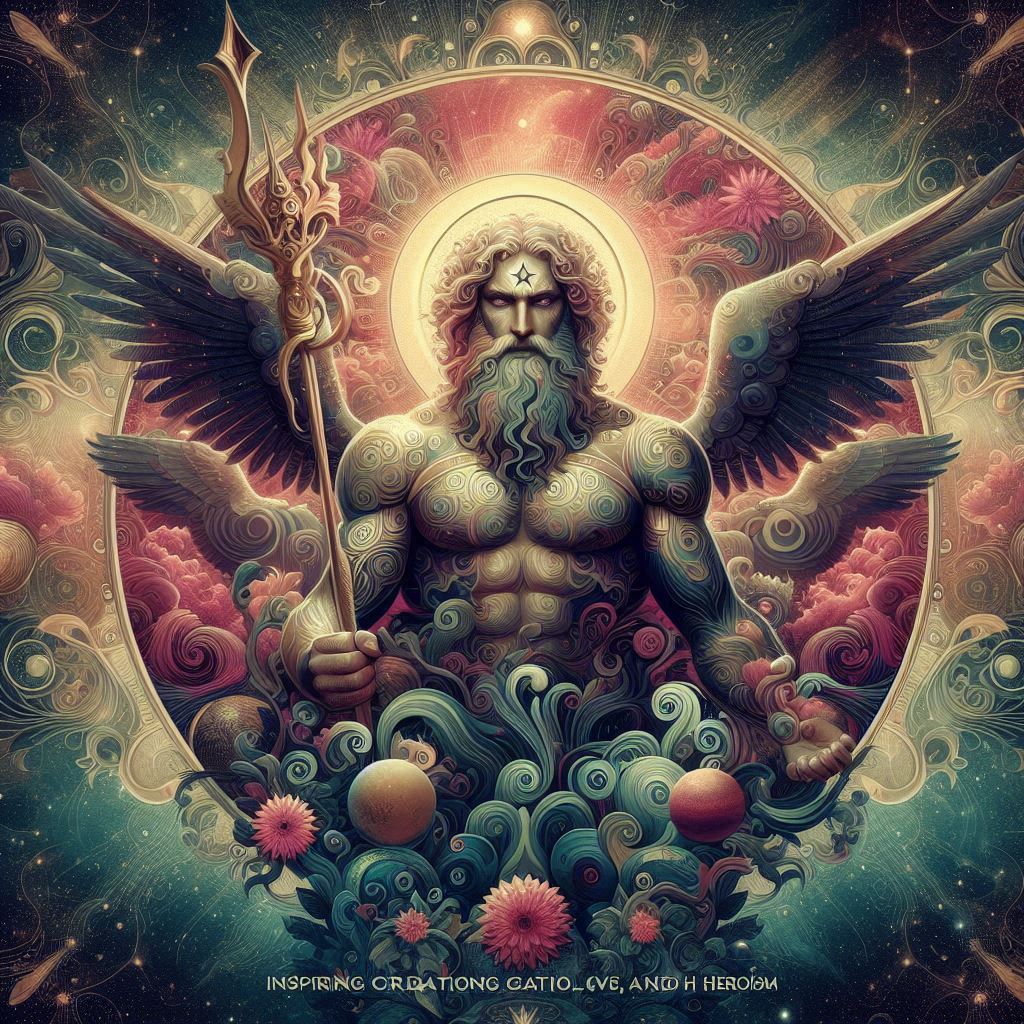
Love, in its many forms—romantic, familial, and spiritual—is a recurring theme in mythology, highlighting the profound impact of human relationships and emotions on the course of divine and mortal affairs.
1. Greek Mythology:
The love story of Orpheus and Eurydice exemplifies the power of music and devotion. Orpheus, the gifted musician, descends into the underworld to retrieve his beloved Eurydice, using his enchanting music to move Hades and Persephone. Their tragic tale underscores themes of love, loss, and the boundaries between life and death. Inspiring Myths of Creation Love and Heroism
2. Hindu Mythology:
The divine love between Lord Krishna and Radha symbolizes the union of the individual soul (Atman) with the universal soul (Brahman). Krishna’s playful and compassionate nature, as depicted in the Bhagavad Gita and the tales of his childhood exploits, inspires devotion and spiritual awakening among his followers, illustrating the transformative power of divine love.
3. Norse Mythology:
The tale of Freyja, the Norse goddess of love and fertility, explores themes of desire, independence, and sacrifice. As a powerful and revered deity, Freyja embodies both love and war, challenging traditional gender roles and celebrating the complexities of human emotions in mythological narratives.
Inspiring Myths of Creation Love and Heroism
Heroism and Moral Virtue
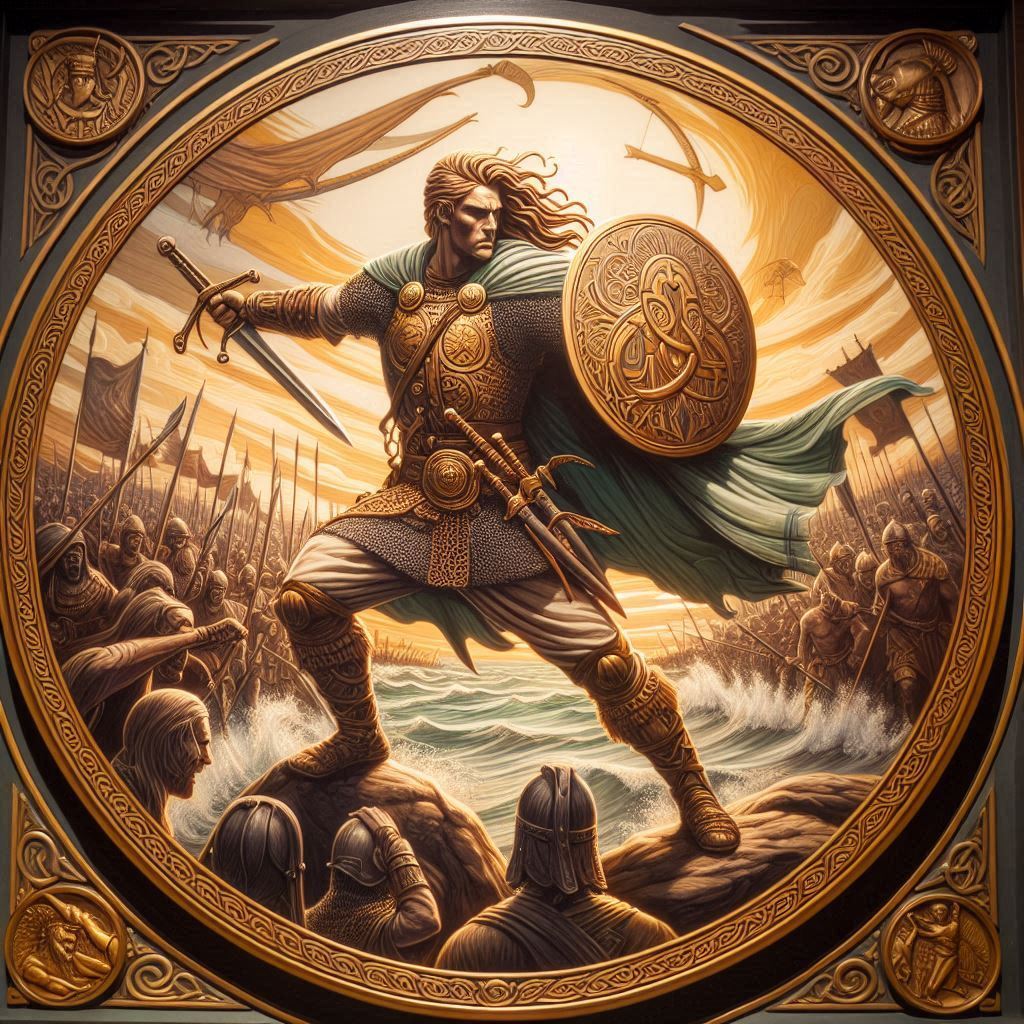
Heroic myths celebrate individuals who demonstrate extraordinary courage, strength, and moral integrity in the face of adversity. These tales inspire audiences to emulate noble virtues and uphold ethical principles in their own lives.
1. Mesopotamian Mythology:
The epic of Gilgamesh, the heroic king of Uruk, chronicles his quest for immortality and personal growth. Gilgamesh’s friendship with Enkidu, his battles against mythical beasts, and his search for wisdom from the gods highlight themes of bravery, friendship, and the inevitability of mortality in ancient Mesopotamian culture. Inspiring Myths of Creation Love and Heroism
2. Celtic Mythology:
The legend of Cu Chulainn, the Irish hero of the Ulster Cycle, showcases his prowess in battle and unwavering loyalty to his people. Cu Chulainn’s heroic deeds, including his defense of Ulster against invaders and his tragic death in single combat, exemplify the Celtic values of honor, courage, and resilience in the face of overwhelming odds.
3. Chinese Mythology:
Journey to the West, one of the Four Great Classical Novels of Chinese literature, follows the adventures of Sun Wukong, the Monkey King, and his quest for enlightenment. Sun Wukong’s rebellious spirit, magical abilities, and transformation from a mischievous trickster into a compassionate and wise protector embody themes of personal growth, self-discovery, and the pursuit of moral virtue.
Lessons for Contemporary Society
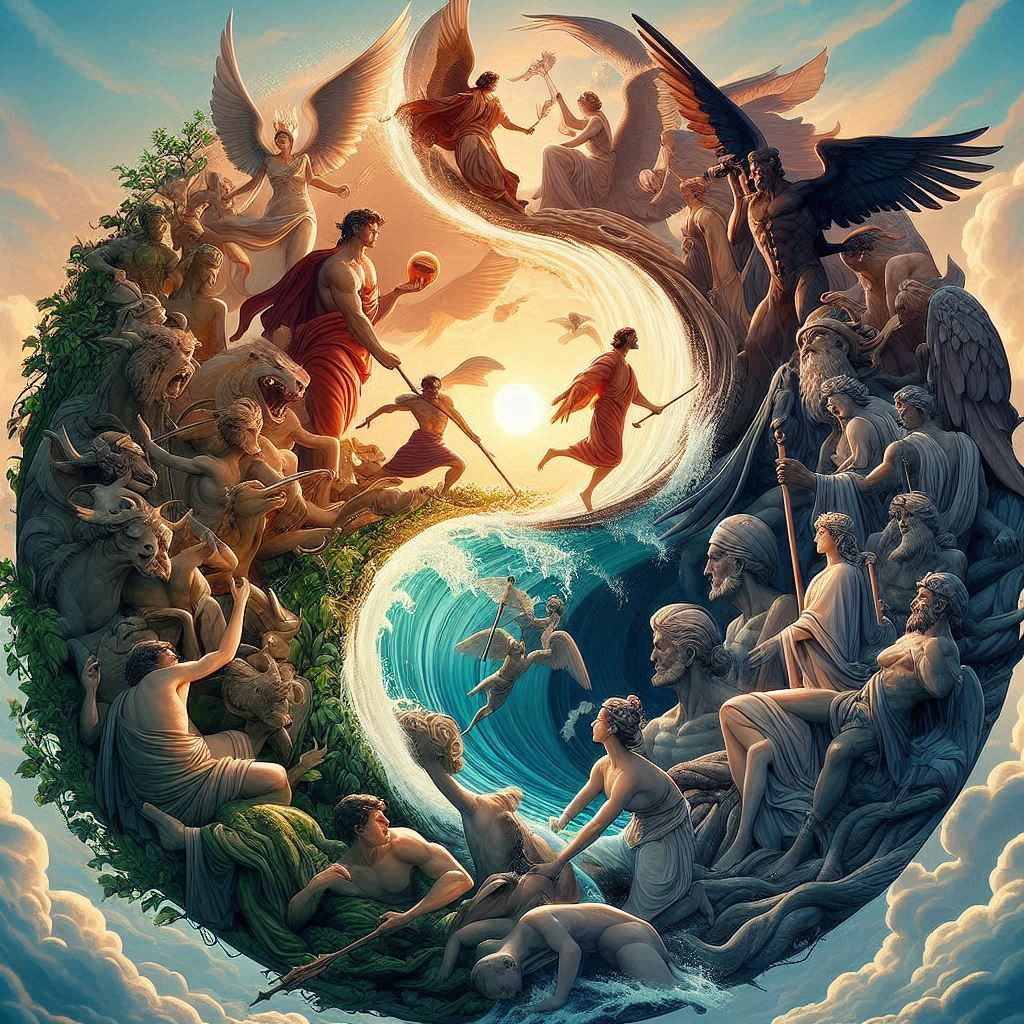
Inspiring Myths of Creation Love and Heroism
1. Ethical Guidance and Moral Dilemmas:
Mythological tales often present moral dilemmas and ethical choices that resonate with contemporary audiences. The trials faced by heroes and gods alike—whether navigating complex relationships, confronting personal flaws, or defending societal values—offer insights into universal principles of justice, integrity, and compassion that remain relevant across cultures and eras.
2. Cultural Identity and Heritage:
Divine myths serve as repositories of cultural identity and heritage, preserving traditions, beliefs, and values passed down through generations. These narratives enrich our understanding of diverse cultures and foster appreciation for the interconnectedness of global humanity, encouraging dialogue and mutual respect in an increasingly interconnected world. Inspiring Myths of Creation Love and Heroism
3. Inspiration and Creativity:
The enduring appeal of divine tales lies in their ability to inspire creativity and artistic expression. From literature and art to music and film, mythological themes continue to captivate audiences and influence contemporary storytelling, offering new interpretations and adaptations that resonate with modern sensibilities while honoring ancient traditions.
Conclusion
“Divine Tales: Inspiring Myths of Creation, Love, and Heroism” celebrates the timeless allure and profound impact of mythological narratives on human culture and consciousness. Through stories of creation, love, and heroism, mythology offers insights into the mysteries of existence, the complexities of human relationships, and the enduring quest for moral and spiritual enlightenment. By exploring these divine tales, we gain a deeper appreciation for the diversity of human experience and the universal values that unite us as a global community. As we navigate the complexities of modern life, the wisdom of mythology continues to guide us toward compassion, wisdom, and the pursuit of noble ideals, ensuring that these divine tales remain sources of inspiration and enlightenment for generations to come.
